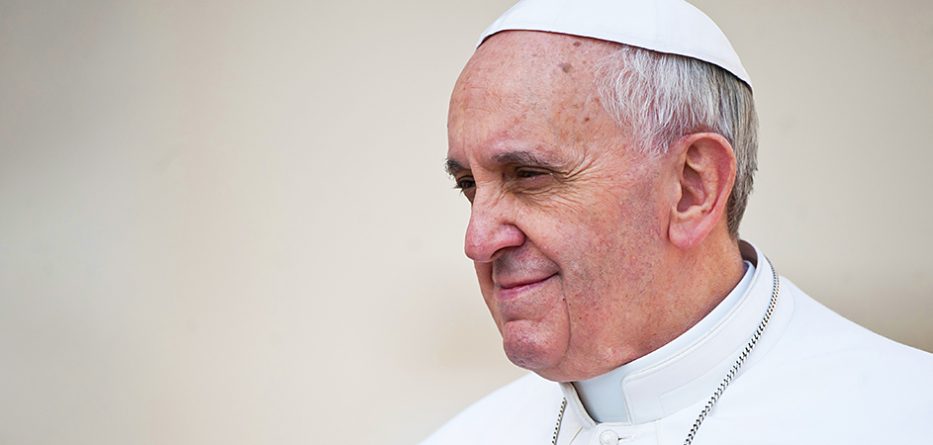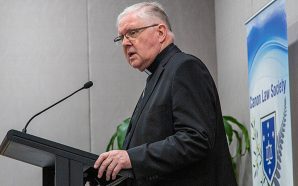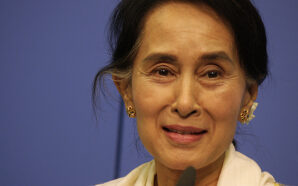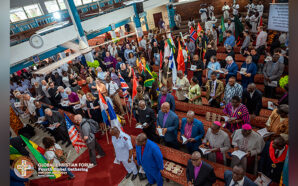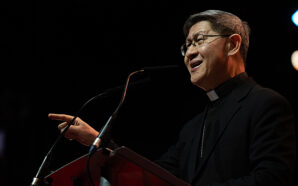Book Review: Pope Francis and Austen Ivereigh, Let Us Dream: The Path to a Better Future, ISBN 9781398502208
No Idle Dream
The Catholic world, and the world at large, is in need of unambiguous and prophetic spiritual guidance, and Pope Francis has provided just that in his new book with Austen Ivereigh, Let Us Dream: The Path to a Better Future (Simon & Schuster). This compact and beautifully-written work functions as both a roadmap for the future and a guide for those perplexed by the Francis papacy. Ivereigh, author of The Great Reformer (2014) and Wounded Shepherd (2019), is Francis’s most authoritative biographer and one of his finest interpreters, and here he functions as an ideal conduit through which the Pope can speak to the world.
In past months, many have suggested that the coronavirus pandemic, despite all the suffering it has caused, is providing the world with an opportunity to reimagine the future and create a more equitable global society. Influential figures in business and government are busy discussing concepts like The Great Reset and the Fourth Industrial Revolution, providing a vision of the future that sounds appealing to some and terrifying to others. Caught between the on-the-ground reality of life in 2020 and the high-sounding prognostications of technocrats, one can easily become anxious or feel powerless. This sense of anxiety and powerlessness has only been exacerbated by the cultural battles that have erupted this year over COVID-19 restrictions, populist politics, and social justice movements like Black Lives Matter. It feels like the world is erupting out of our control. Certainly, Catholics have been deeply affected by these developments, which have also hardened some of the existing divisions within the Church.
Those paying attention to Francis’s recent writings and talks will know that he too has been discerning a vision of our potential post-COVID future, interpreting the signs of the times and shaping his thoughts accordingly. Fratelli Tutti, his recent encyclical, enters into this territory, although its length and somewhat (to borrow Francis’s term) “polyhedral” structure make it difficult for the casual reader to absorb. In Let Us Dream, his post-COVID vision is presented in a clear and conversational way, and what he offers is a deeply Catholic alternative to some of the overly technocratic elements in concepts like the World Economic Forum’s Great Reset.
Francis condemns governments who have “mortgaged their people” in response to the coronavirus, and says that we must place human dignity at the very centre of our political efforts, with a particular focus on providing all people with “the three Ls of land, lodging, and labour, as well as education and health care” (112). The way we can do this is to move forward according to a process of discernment—a process that is reflected in the three chapter titles, “A Time to See,” “A Time to Choose,” and “A Time to Act.” He applies this See-Judge-Act method throughout Let Us Dream, encouraging us to do the same.
Crucially, Francis says that we must look first to the margins to start our processes of discernment:
You can’t know poverty from a distance; you have to touch it. To recognise and come close—that’s the first step. The second step consists in responding practically and immediately, because a concrete act of mercy is always an act of justice.
But a third step is necessary if we are not to fall into mere welfarism: to reflect on the first two steps and open ourselves to the necessary structural reforms. (113)
Francis examines a range of social issues with an emphasis on helping the marginalised or forgotten, proposing possible solutions in some cases—like a Universal Basic Income—but ultimately his goal is to inspire us to think and discern for ourselves. He says that “This is a time for pilgrimages” (135), which is a striking statement considering that so many people are currently stuck in their homes. According to Francis, we are wandering in a sort of “labyrinth,” and in order to find our way out and establish new means of maintaining solidarity with others, we must “decentre” and “transcend.” The Church does not have all the answers, even if it has access to the truth: “There is no contradiction between being solidly rooted in the truth and at the same time being open to a greater understanding” (57). What we wait for as we journey are those moments of “overflow,” when God’s mercy spills out and provides us with an unforeseen basis for acting and working together (7).
The book also touches upon plenty of hot-button topics regarding the Church, and select quotations are already garnering some strong reactions, so I will not address those here. In any case, what Let Us Dream offers is more than a response to critics; it offers a way of thinking that can lead us past the controversies that threaten to paralyse discourse. Let Us Dream contains what is perhaps Pope Francis’ most lucid explanation of the way dialogue should function in the Church, and of special import is the distinction he draws between “contrapositions,” or opposites that can exist in a harmonious tension, and “contradictions,” which are a matter of good and evil or right and wrong. He says, “To see contrapositions as contradictions is the result of mediocre thinking that takes us away from reality” (79). Certainly, the reduction of every disagreement into an epic battle of good versus evil has poisoned public discourse both inside and outside the Church, and has made genuine dialogue a rare thing. We need to hold back, and let contrapositions exist, until we either experience a moment of “overflow” or discern that a path forward is blocked for now. Those wishing to understand Francis’ emphasis on synodality, and his concerns with certain politicised approaches to synodality, will find many revelations here.
There are two primary audiences for this book: those within the Church who wish to better understand Pope Francis’ thinking and the direction the Church is headed, and those outside the Church who could benefit from Pope Francis’s contributions to the global discussion regarding what lessons we should take from the coronavirus pandemic. Although it deals with events and issues that are very much of the moment, it contains nothing superficial or platitudinous. Let Us Dream is the sort of book you’ll want to keep at your side and read slowly so that you can meditate upon the passages as you go. It’s also the sort of book you may wish to give as a gift to someone, Catholic or non-Catholic, who is struggling to find hope and a path for productive action as we prepare to spend the holidays under the shadow of COVID-19.
Let Us Dream: The Path to a Better Future by Pope Francis (in collaboration with Austen Ivereigh) will be released by Simon & Schuster on December 1, 2020. In this book, Pope Francis explains why we must—and how we can—make the world safer, fairer, and healthier for all people now.
D.W. Lafferty, PhD, is a Catholic husband, dad, and independent scholar from Ontario, Canada. He works in higher education and has published articles on the literature of Wyndham Lewis, the conspiracy theory of Douglas Reed, and the life and legacy of Engelbert Dollfuss. Online, he tweets as @rightscholar.
With thanks to Where Peter Is and D.W. Lafferty, where this article originally appeared.




